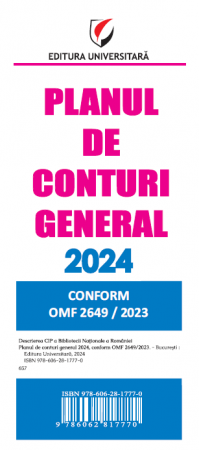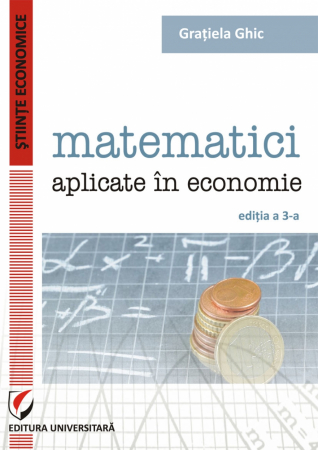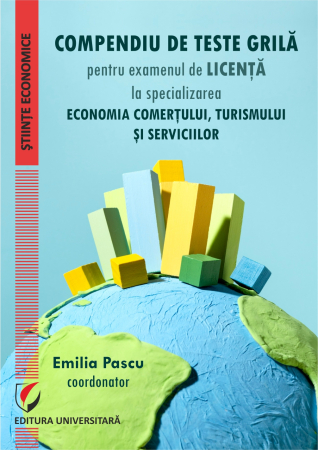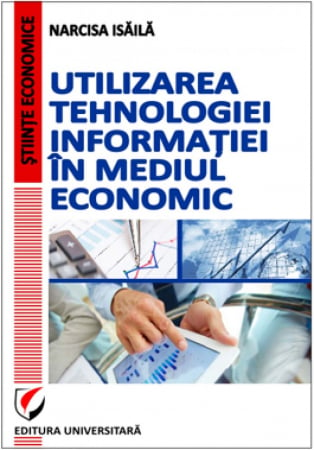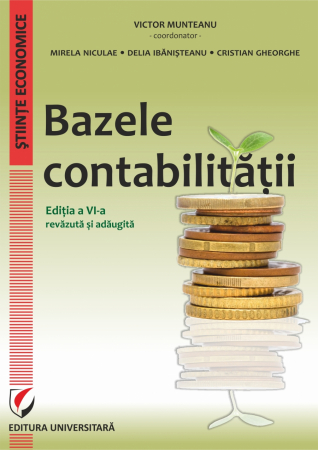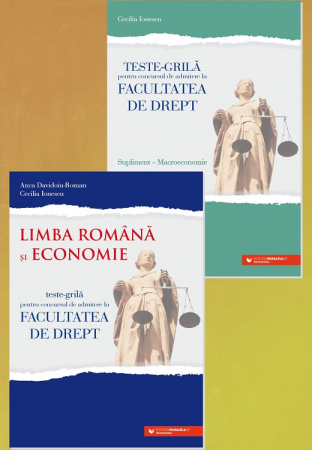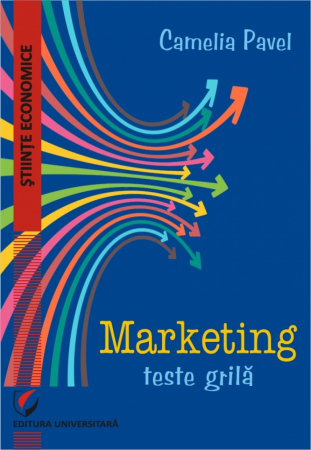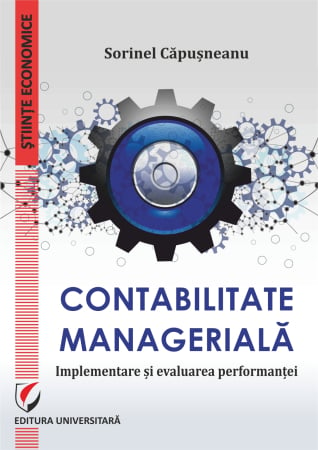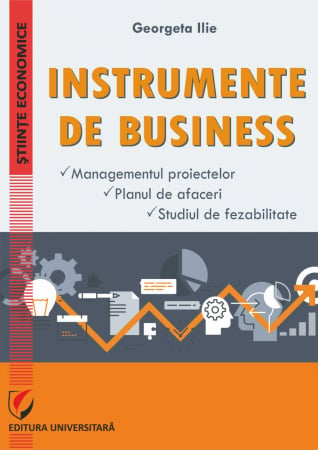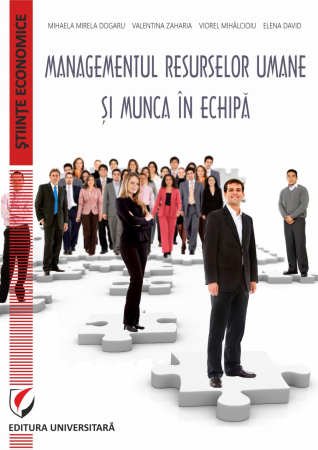6359.png) Greener employment. The potential for creating green jobs of the Romanian economy. An indicative evaluation
Greener employment. The potential for creating green jobs of the Romanian economy. An indicative evaluation
6359.png)
Publisher: Editura Universitară
Author: Catalin Ghinararu, Ghenadie Ciobanu, Adriana Ana Maria Davidescu, Beatrice Chiriac
ISBN: 978-606-28-0385-8
DOI: 10.5682/9786062803858
Publisher year: 2015
Edition: I
Pages: 118
- Description
- Download (1)
- Authors
- Content
- More details
- Reviews (0)
-
Campul muncii inverzeste. Potentialul de creare de locuri de munca verzi al economiei romanesti. O evaluare indicativa
Download
GHENADIE CIOBANU
ANAMARIA DAVIDESCU
BEATRICE CHIRIAC
Chapter I. The green economy in the vision of the Europe 2020 Strategy and in the Romanian strategic visions for the end of this decade / 9
1.1. Strategic Objectives for the development of the green economy in Romania / 9
1.2. Objectives of building the green economy for developing countries / 14
1.3. Defining the economy and green jobs - conclusions on international experiences / 15
Chapter II. Measurement of the green economy, indicators and statistical quantities. Analysis of the current situation of the branches of the green economy in Romania / 18
2.1. Methodologies for measuring the green economy and green jobs. Proposals for statistical definitions and measurement of green jobs / 18
2.2. Objectives and uses of statistics on ecological jobs. General requirements and types of users / 19
2.3. Indicator groups / 26
2.4. Analysis of the current situation of the branches of the green economy in Romania / 29
2.4.1. Environmental protection in the context of sustainable development and the evolution of expenditures for environmental protection in Romania / 29
2.4.2. Green Cities - Green Regions / 31
2.4.3. Development of organic agriculture in Romania / 32
2.4.4. Opportunities for the development of renewable energy sources in Romania / 33
2.4.5. Biomass as a renewable energy source, analysis of technologies for obtaining energy from it / 36
2.4.6. Sustainable transport in Romania. Strategy for sustainable transport in the period 2007-2013 and 2020, 2030/37
2.4.7. Climate change policies for Romania - as an economic incentive to move towards a "green" economy / 38
2.4.8. Ecotourism - potential for green jobs / 41
Chapter III. Green jobs and green qualifications - concept, evolutions, trends and sociological study / 43
3.1. Jobs in ecological economy: typology and characteristics / 43
3.2. Developing the concept of green jobs / 44
3.2.1. Development of the green economy in EU member states. The evolution of the main indicators in the O.E.C.D. / 45
3.2.2. Renewable energy sources / 47
3.3. The evolution of the transport situation in the EU / 55
Chapter IV. Sociological research on the evaluation of the potential of green jobs in Romania / 61
4.1. Objectives and methodological landmarks / 61
4.2. Presentation of results / 64
4.3. Questionnaire analysis / 72
4.3.1. Evolution of the number of green jobs in the company. Motivating factors in making the decision to create "green" jobs - justifications and projections / 72
4.3.2. The evolution of the number of green jobs in the company: arguing the opinion / 74
4.3.3. Efficient management of resources in the company / 77
4.3.4. Benefits and difficulties encountered in the process of generating green jobs / 78
4.3.5. State support / 79
4.4. Conclusions and recommendations of sociological research / 79
Chapter V. Theories, models and experiences for the development of the green economy and the creation of green jobs / 81
5.1. A review of the economic thinking of the Romanian scientist Nicolae Georgescu Roegen / 81
5.2. From Nicolae Georgescu Roegen to Paul Bran / 84
5.3. Creating new jobs and "green" economic activities / 89
5.4. Comparative study on green job identification and registration systems in five EU / 90 Member States
5.5. Studies and articles on the development of the green economy and the creation of green jobs / 93
5.6. Competent green / 94
5.7. Ecological viability of the economy and employment insurance for all / 97
5.8. Studies, measures and programs to support the development of the green economy and the creation of green jobs / 100
Conclusions / 110
Bibliography / 113
Karl Burkart defines the green economy as being based on six main sectors:
• renewable energy (solar, wind, etc.)
• “green” constructions (eg LEED constructions - Leadership in Energy and Environmental Design)
• alternative fuels (electric or hybrid vehicles, etc.)
• water management (water treatment, rainwater collection systems, etc.)
• waste management (recycling, etc.)
• territorial management (including organic agriculture, habitat conservation, afforestation at urban level-parks, reforestation and land stabilization).
The Global Citizens Center led by Kevin Danaher defines the "green economy" as an economy based on:
Sustainability - based on the fact that our biosphere is a closed system with finite resources and a limited capacity for self-regeneration. We depend on the earth's natural resources and that is why we must create an economic system that respects the integrity of ecosystems.
Social environment - we must create an economic system that ensures all people access to a decent standard of living and full of opportunities for social and personal development.
The green economy is a global aggregate of individual communities to meet the needs of its citizens through responsible, local production and the exchange of goods and services.

![Greener employment. The potential for creating green jobs of the Romanian economy. An indicative evaluation [1] Greener employment. The potential for creating green jobs of the Romanian economy. An indicative evaluation [1]](https://gomagcdn.ro/domains/editurauniversitara.ro/files/product/large/campul-muncii-inverzeste-potentialul-de-creare-de-locuri-de-munca-verzi-al-economiei-romanesti-o-evaluare-indicativa-664-918224.jpg)
